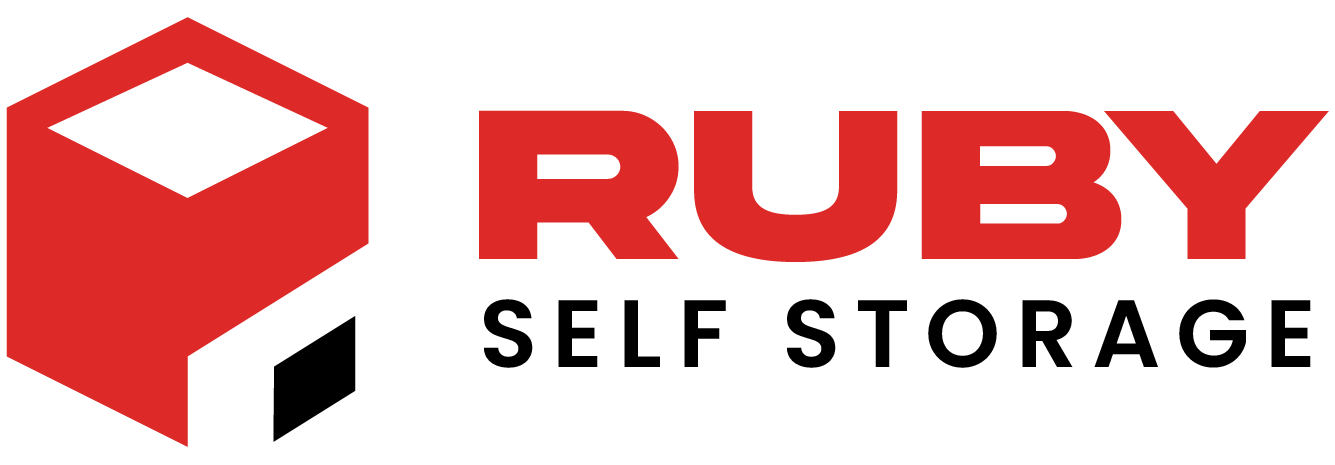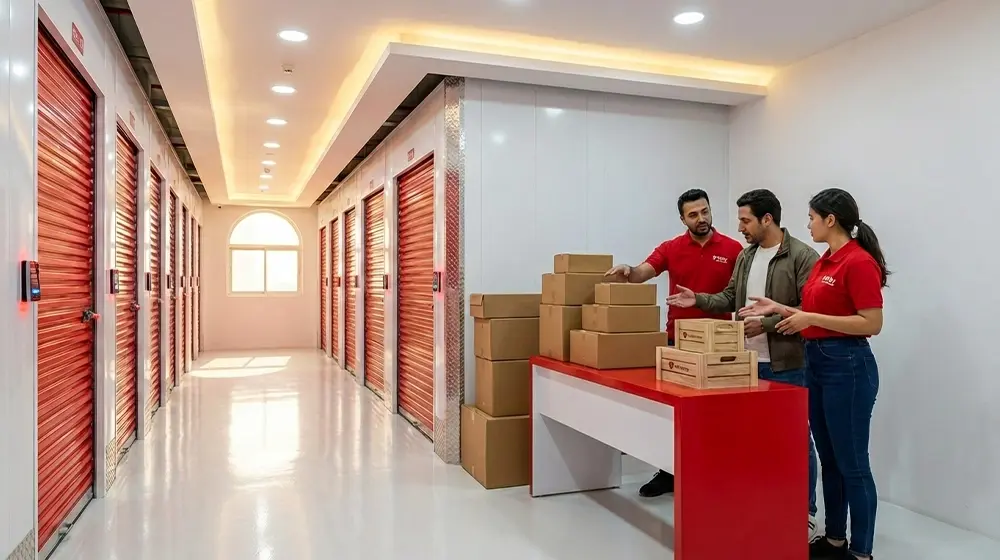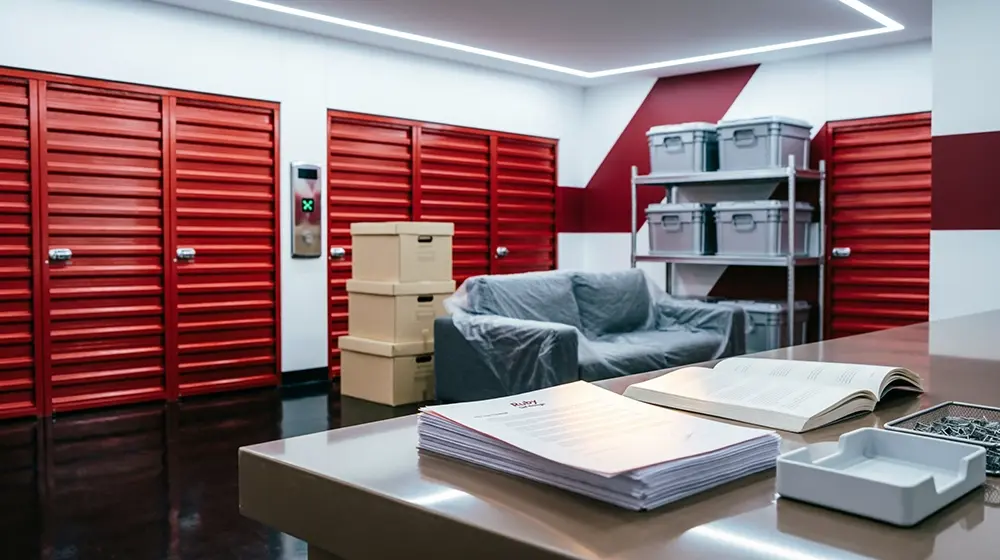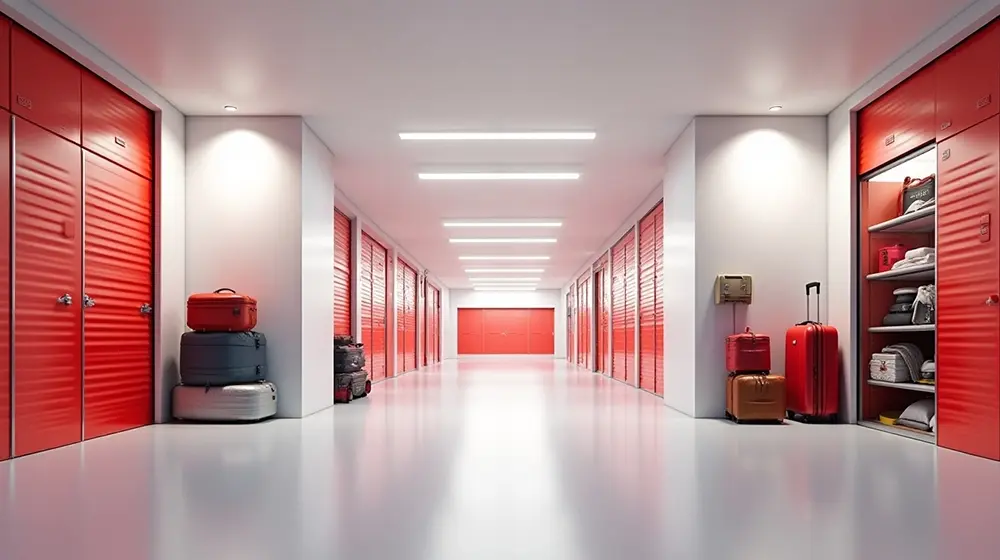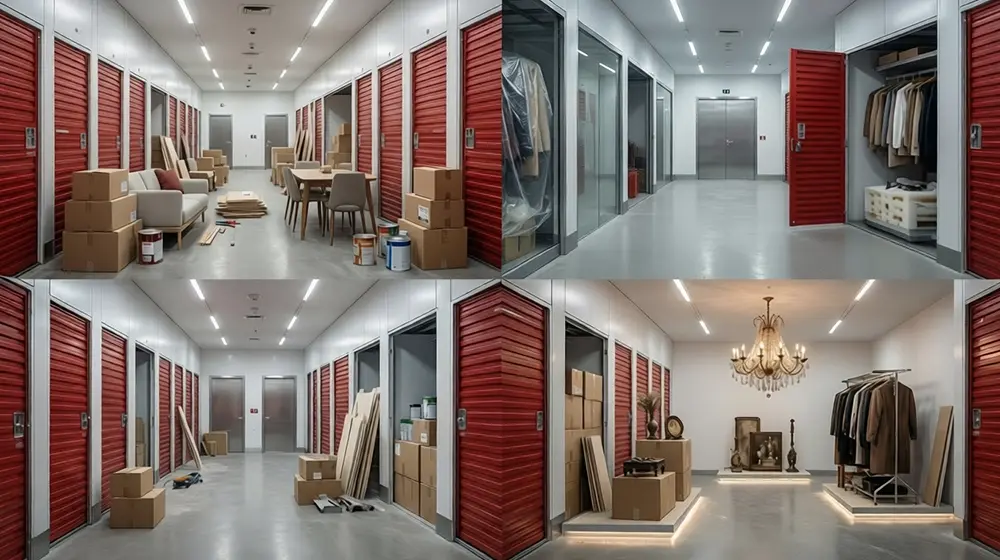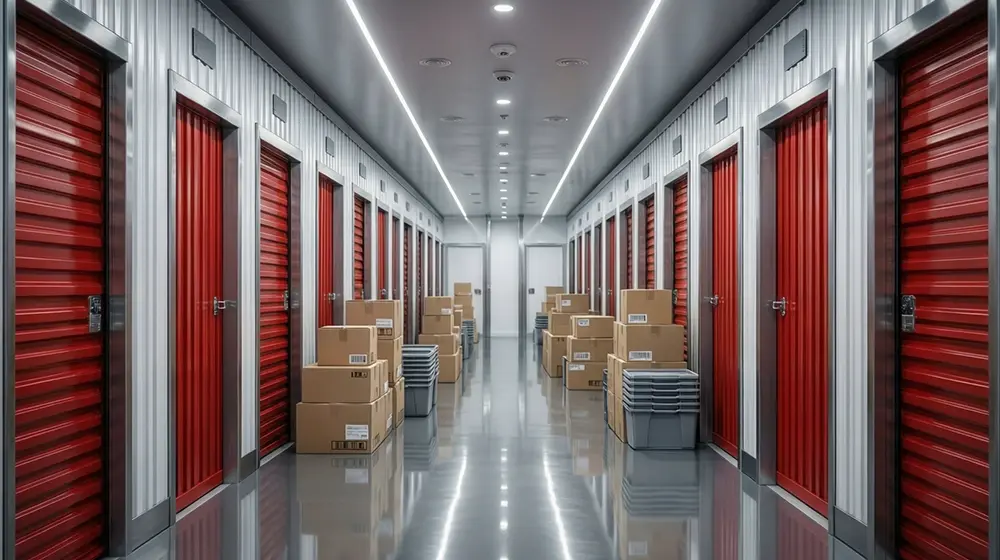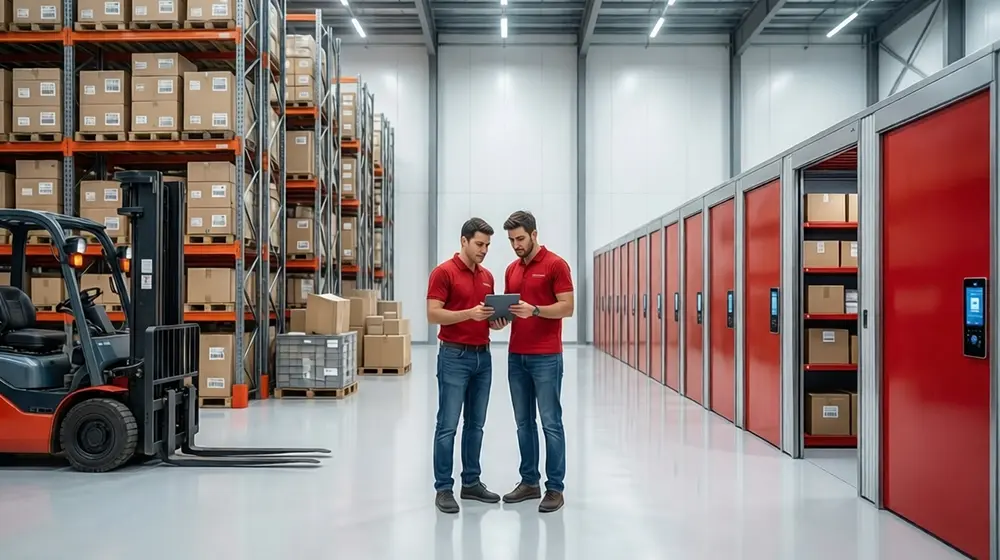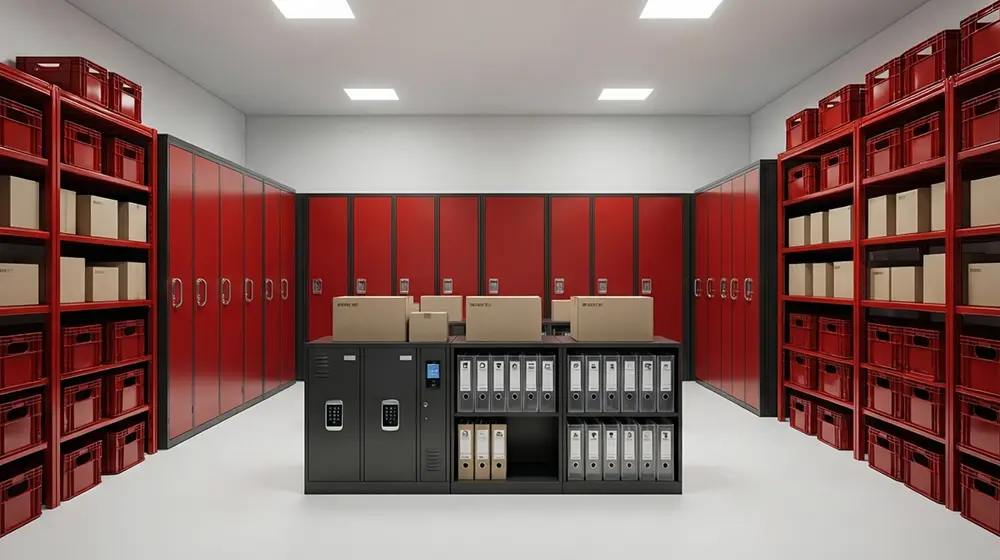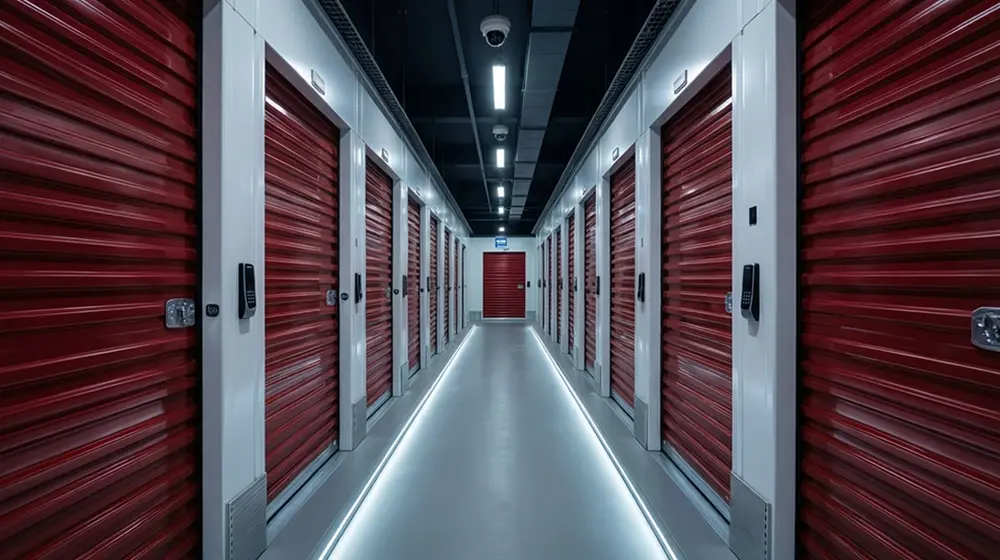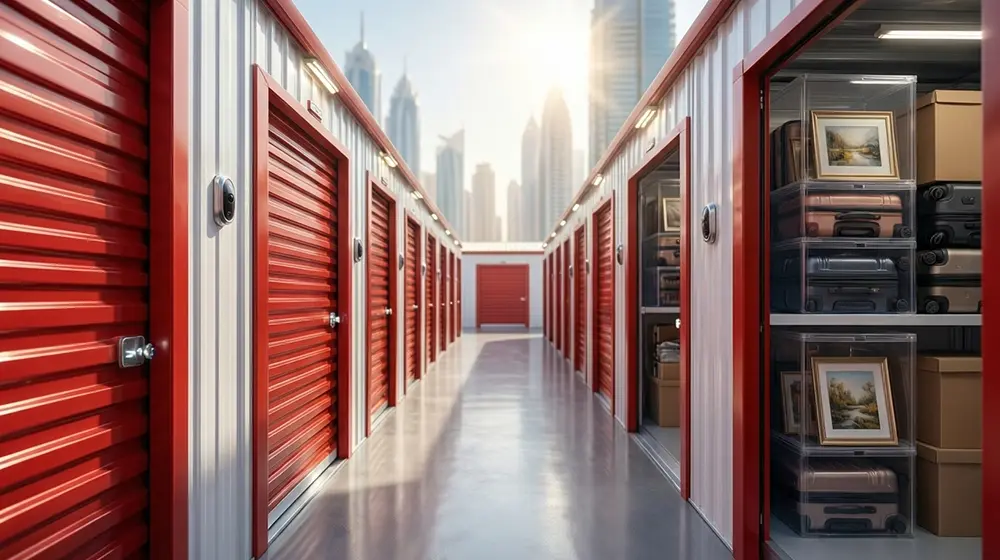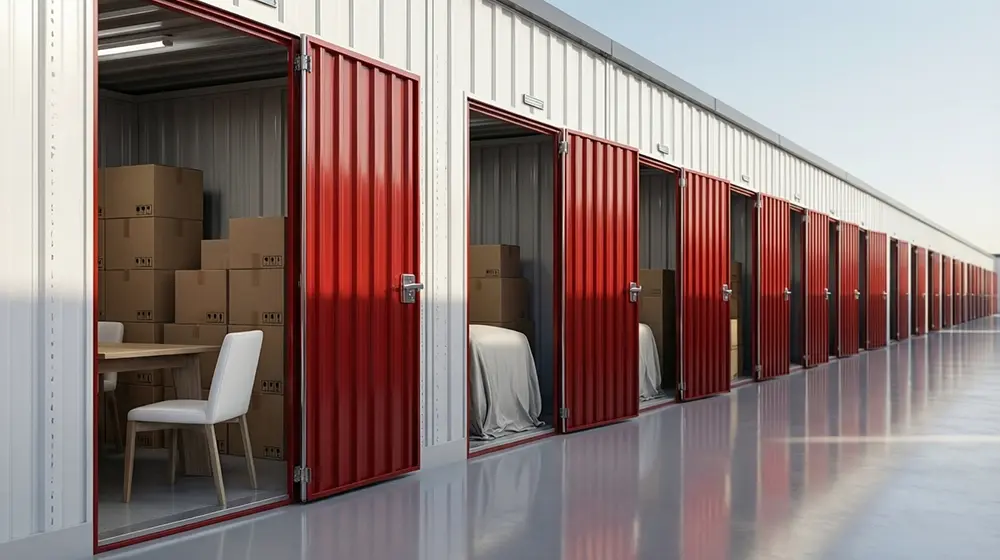Dubai has built its reputation as one of the fastest-growing cities in the world. Expats arrive for new opportunities, Emirati families expand their homes, and entrepreneurs carve out businesses in every corner of the emirate. Alongside this rapid growth comes a consistent problem that residents face every day: space management.
This is why personal storage in Dubai has become more than a passing convenience. This guide provides a practical, affordable, and essential solution for both short-term and long-term needs.
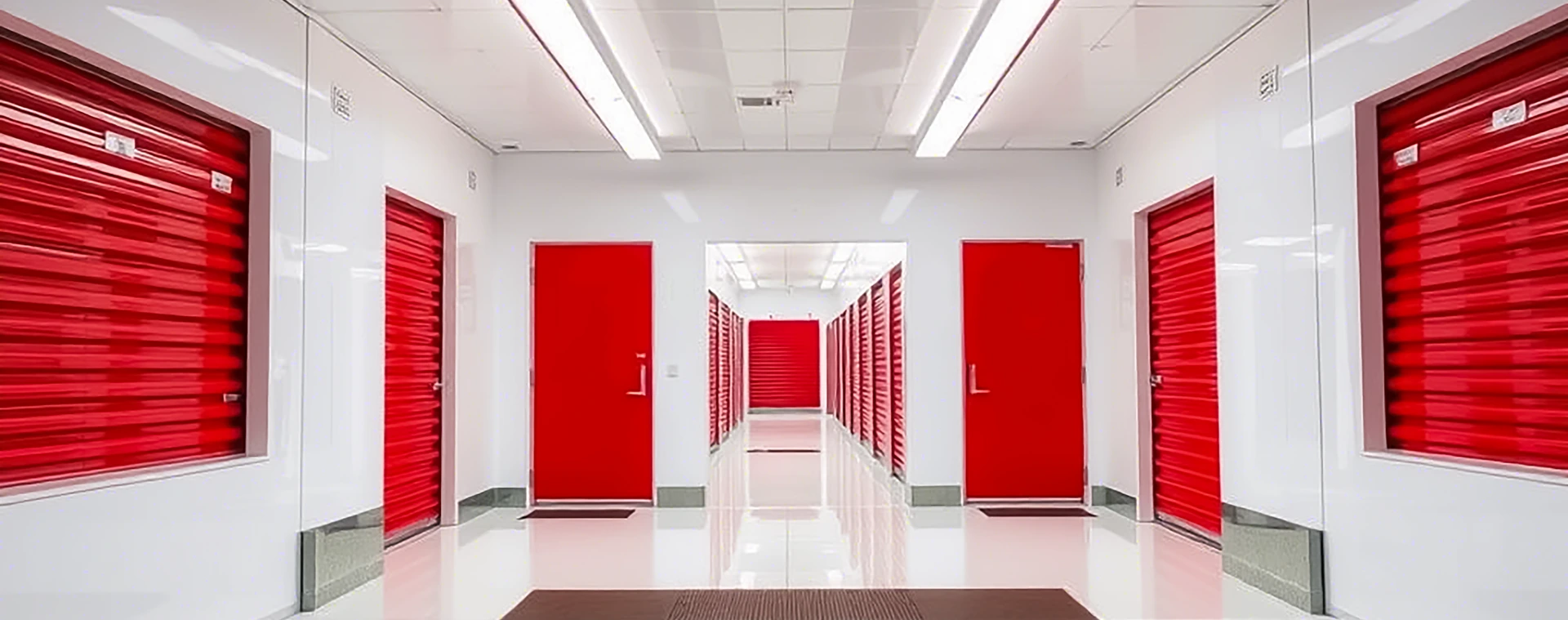
Features to Look for in Storage Facilities in Dubai
Below are the five essential features UAE residents should prioritize when selecting a storage facility, along with real Dubai examples and practical checklists.
Security: Protecting Your Belongings 24/7
Dubai is one of the safest cities in the world, but that doesn’t mean you should compromise on storage security. Theft, mishandling, and unauthorized access can still happen if a facility cuts corners.
What to Look For in Security:
24/7 CCTV Surveillance: Cameras covering all entry/exit points, hallways, and loading bays.
Controlled Access: Biometric or PIN-based entry, so only registered clients enter.
On-Site Guards: Some premium facilities in Al Quoz and Business Bay keep trained staff on duty at all times.
Alarm Systems: Motion detectors and fire alarms add an extra layer of protection.
Climate Control: The Non-Negotiable in Dubai
Dubai’s weather is harsh: summers above 45°C, humidity that sticks around even in winter, and fine dust carried by desert winds. Without proper climate control, long-term storage can ruin valuables within months.
Why Climate Control Matters:
Furniture: Heat warps wood, weakens joints, and peels veneers.
Clothing & Fabrics: Humidity causes mildew, musty odors, and permanent stains.
Electronics: Dust infiltration damages circuitry; heat shortens lifespan.
Documents & Photos: Paper curls, ink fades, and mold forms in non-regulated conditions.
Dubai Standard for Climate Control in Storage:
Temperature: 18–24°C consistently
Humidity: 40–55% (ideal to prevent mold and dryness)
Dust Filters: HEPA or fine mesh to block sand particles
Air Circulation: Continuous airflow to prevent hotspots
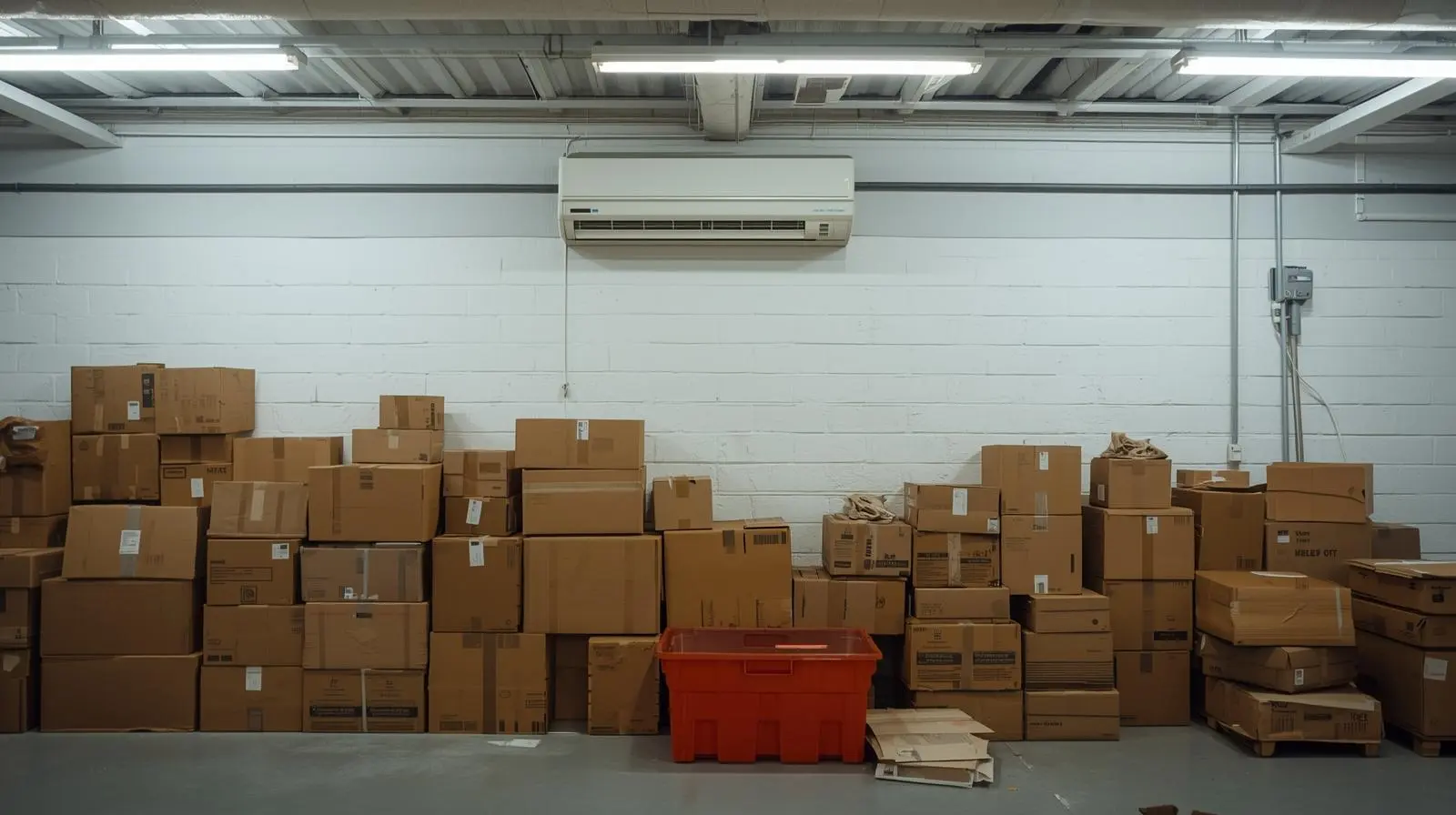
Accessibility: Location, Hours, and Ease of Use
A storage unit is only as convenient as your ability to access it. Some residents need weekly access (e.g., business inventory), while others may only visit once a year.
Factors to Consider in Dubai:
Location:
Al Quoz & Al Barsha: Central, ideal for Downtown, Jumeirah, and Marina residents.
Dubai Investment Park (DIP) & JAFZA: Great for businesses needing larger units at lower rates.
Dubai Marina & Business Bay: Premium locations for urban residents; typically higher prices.
Access Hours: Some providers offer 24/7 access; others restrict access to business hours.
Flexible Contracts and Transparent Pricing
Flexibility is one of the key reasons residents choose personal storage in Dubai. Whether it’s short-term (weeks) or long-term (years), contracts should be clear, adjustable, and cost-effective.
What to Look For:
Short-Term Contracts: Month-to-month or even weekly options.
Long-Term Discounts: Savings of 15–25% for 12-month commitments.
Clear Exit Policy: Avoid hidden fees for early move-outs.
Unit Flexibility: Ability to upsize or downsize without penalties.
Payment Methods: Reputable facilities issue VAT invoices, accept cards, and sometimes offer auto-pay.
Cost Range in Dubai (2025 averages):
Small locker (documents, clothes): AED 250–400/month
Mid-sized unit (1BR apartment contents): AED 800–1,200/month
Large villa-sized unit: AED 1,800–3,000/month
Insurance and Liability Coverage
Even with the best climate control and security, unforeseen risks exist: fire, flooding, or accidental mishandling. That’s why insurance for storage in Dubai is essential, especially for long-term or high-value items.
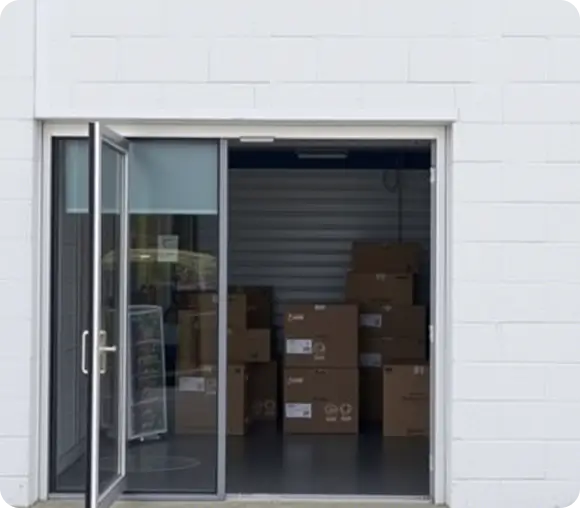
Insurance Options Typically Available:
Basic Coverage: Included in rental, often limited (e.g., AED 5,000–10,000).
Extended Coverage: Add-on policy for higher-value goods (artwork, antiques, luxury furniture).
Third-Party Insurance: Some residents arrange their own coverage through banks or insurers.
Questions to Ask Storage Providers:
What exactly does the insurance cover (fire, theft, flooding)?
Is it included in the price or charged separately?
Is there a deductible?
How is value assessed (market value or declared value)?
Quick Reference: Dubai Storage Facility Checklist
When choosing storage units in Dubai, here’s a quick recap of the must-have features:
Security: 24/7 CCTV, controlled access, alarms
Climate Control: Stable 18–24°C, 40–55% humidity
Accessibility: Convenient location, 24/7 entry, loading docks
Contracts: Transparent, flexible, with discounts for long-term
Insurance: Adequate coverage for the value stored
Service Quality: Helpful staff, extra services, responsive support
Short-Term Personal Storage in Dubai: Solving Immediate Space, Time, and Risk
Short-term storage in Dubai is the “pressure valve” residents use when life gets busy. The point isn’t just to park boxes. It’s to lower risk, lower cost, and lower stress while keeping your household or business moving. That’s why short-term personal storage in Dubai is built around flexibility: month-to-month contracts, quick move-ins, easy upsize/downsize, and access windows that match your schedule.
Most Common Short-Term Use Cases (and What to Watch Out For)
Home Renovation & Deep Cleaning (2–12 weeks)
Dust from tiling, carpentry, or drywall lingers. Paint overspray and accidental knocks scratch furniture. In apartments, the “spare room” quickly becomes a hazard zone.
Risks if you don’t store:
Micro-scratches on wood and marble that only show after handover
Upholstery absorbing odors or fine dust (hard to clean)
Delays because workers have to shift items around constantly
Lease Gaps & Key-Handovers (7–30 days)
Your current lease ends on the 30th; your new keys arrive on the 10th. Paying for a hotel, keeping movers on standby, and negotiating with landlords is expensive and stressful.
Short-term storage advantage:
Store everything for 10–20 days
Take your time to deep-clean the new place
Move in phases (bedrooms first, décor later)
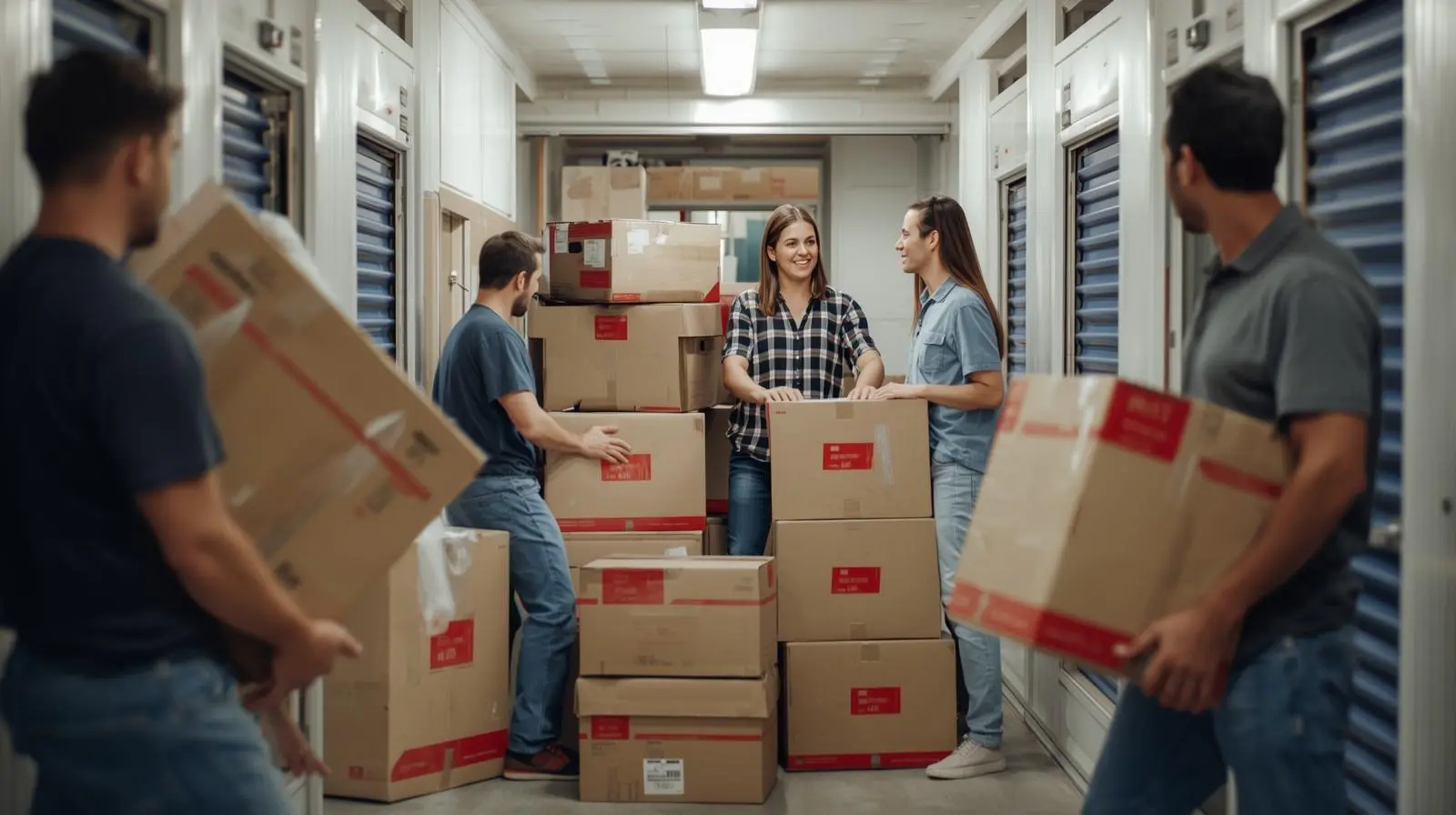
Travel, Sabbaticals, and Temporary Assignments (2–12 weeks)
You’re away for project work or an extended holiday. You don’t want to keep paying for a bigger unit “just in case.”
Why storage wins:
Affordable storage in Dubai lets you downsize your apartment temporarily
Climate control protects electronics, art, leather, and photos
Secure access if a trusted friend needs to pick up something while you’re away
Quick Cost Logic: Why Short-Term Storage Often Beats the Alternatives
Upsizing rent by even AED 2,000/month just for space you don’t use daily = AED 24,000/year.
Short-term storage units in Dubai (right-sized) typically cost a fraction of that.
A single reupholstery or marble repair can cost more than 2–3 months of a small unit.
Common Challenges (and How to Prevent Them)
Underestimating Unit Size
Problem: Renting too small leads to over-stacking and damage risk.
Fix: Share photos + a rough inventory with the provider. They’ll recommend the right-sized storage unit (often cheaper than two small ones).
Humidity & Dust
Problem: Dubai’s climate can warp wood and dull finishes.
Fix: Choose climate-controlled short-term storage in Dubai; use breathable covers and silica gel packs.
Fragile/High-Value Items
Problem: Art, marble, crystal, and electronics are sensitive to temperature swings and knocks.
Fix: Double-box, pad corners, keep original packaging where possible, and consider insurance.
Access Timing
Problem: You need a box on Sunday night; facility hours are limited.
Fix: Confirm access hours and whether 24/7 access is possible before booking.
Label Chaos
Problem: “Where’s the router?” = time wasted.
Fix: Clear labels on 3 sides + one-page inventory on your phone; color-code by room.
Short-Term vs. “Make-Do at Home”: What Actually Saves Time
Task/Outcome | Cramming at Home | Short-Term Storage in Dubai |
|---|---|---|
Contractor speed | Slower (constant moving of furniture) | Faster (clear rooms, direct access) |
Damage risk | Higher | Much lower (protected, isolated) |
Cleaning after work | Heavy (dust in fabrics) | Light (items return clean) |
Family stress level | High | Manageable |
Total cost (all factors) | Hidden costs add up | Transparent, sized to actual need |
Quick Planner: Your 7-Day Short-Term Storage Timeline
T-7 to T-5: Book a unit, confirm access hours, and order packing materials.
T-4: Declutter (sell/donate), list items by room.
T-3: Pre-pack light items; label by room + priority.
T-2: Pack electronics/art; complete insurance (if needed).
T-1: Movers load; keep a “first-week” box with you.
Storage period: Keep inventory on phone; schedule partial retrievals if needed.
Return day: Unpack by priority; recycle materials; close unit.
Long-Term Personal Storage in Dubai: Stability, Protection, and Peace of Mind
While short-term storage offers flexibility during temporary transitions, many Dubai residents face situations that demand long-term storage solutions. This isn’t about weeks; it’s about months or years. For expats relocating abroad, families preserving valuables, or businesses with steady inventory needs, long-term personal storage in Dubai becomes an affordable, reliable safety net.
In a city where change is constant and mobility is part of everyday life, long-term storage does more than save space. It provides continuity and security for possessions you want to keep but cannot accommodate at home or in the office.
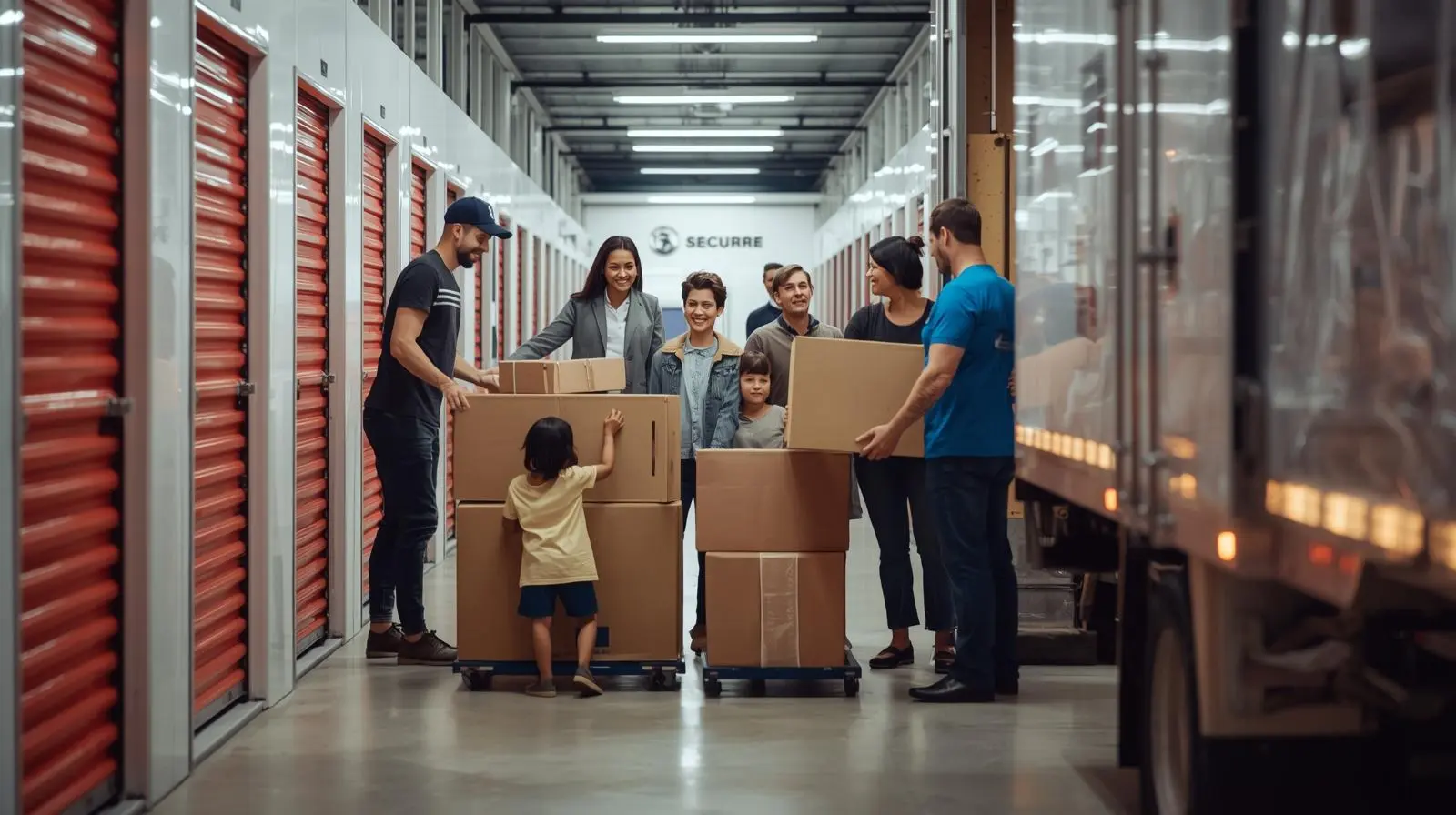
Expat Relocations and Overseas Assignments
Dubai’s expat community is uniquely mobile. Professionals often receive overseas postings for 12–36 months, or families move back to their home country temporarily before returning. The dilemma: what to do with household belongings, vehicles, or valuables while away?
Cost of Shipping Abroad: Relocating a 2-bedroom apartment internationally can cost between AED 25,000–40,000 one way, plus the same on return. If the move is temporary, these costs double unnecessarily.
The Smarter Alternative: Many expats choose long-term storage in Dubai instead. By placing furniture, electronics, and household goods in secure facilities, they avoid double-shipping fees and know their items are waiting when they return.
Families Preserving Heirlooms and Household Treasures
Dubai is home to families who value tradition and heritage. From antique furniture to wedding gowns, ornate décor, and sentimental gifts, these items are priceless but not used daily.
Problem: Limited villa storage means heirlooms end up in garages or basements, where Dubai’s heat and humidity accelerate damage.
Solution: Long-term personal storage units in Dubai provide climate-controlled environments, protecting wood from warping, fabrics from mildew, and metals from corrosion.
Businesses and Inventory Management
Dubai’s SMEs, startups, and retailers face unique space pressures. Many cannot justify paying for large warehouses, but they also cannot risk overloading small offices with extra stock.
Event Companies: Firms working around Expo City or Dubai World Trade Centre use long-term storage to keep AV equipment, furniture, and décor between major events.
E-Commerce Startups: Online sellers in Dubai Silicon Oasis or Jumeirah Village Circle store products securely, with 24/7 access for easy fulfillment.
- Advantage: Long-term business storage units are cost-efficient compared to renting a full warehouse, especially for SMEs and startups.
Why Climate Control is Non-Negotiable in Dubai
Dubai’s environment is unique — and tough on belongings. Long-term storage without climate control can cause irreversible damage.
- Heat: Summer temperatures exceeding 45°C can warp wood, crack plastics, and dry out leather.
- Humidity: Even in cooler months, trapped moisture causes mold on fabrics and corrosion on metals.
- Dust: Fine desert sand seeps into electronics and delicate items if units aren’t sealed and filtered.
Climate-controlled long-term storage in Dubai keeps units at stable temperatures (18–24°C) with regulated humidity (40–55%). This ensures sensitive items like documents, electronics, art, and leather remain intact.
Insurance and Security: Protecting What Matters Most
When you’re storing items for years, peace of mind becomes as important as space.
24/7 Surveillance: Top facilities use CCTV, biometric access, and alarm systems.
Insurance Options: Most providers offer policies covering theft, fire, and accidental damage. For high-value items (artwork, jewelry, rare collectibles), insurance is strongly recommended.
Access Logs: Long-term storage providers often maintain digital entry logs so you know exactly when your unit was accessed.
For residents leaving Dubai for extended periods, these features ensure complete security — no different from a bank vault, but more practical for furniture, documents, or electronics.

Long-Term Storage vs. Alternative Costs
To highlight why long-term storage in Dubai makes financial sense, let’s compare common scenarios:
Scenario | Alternative | Approximate Cost | Drawbacks | Long-Term Storage Solution |
|---|---|---|---|---|
Expat leaves Dubai for 2 years | Ship 2BR apartment abroad & back | AED 50,000–80,000 | Double the cost, customs hassles | AED 18,000–24,000 over 2 years in storage |
Family heirlooms stored at home | Use the villa’s garage or basement | AED 0 direct cost | Heat + humidity = permanent damage | AED 500–1,000/month storage protects valuables |
SME seasonal stock | Rent warehouse space | AED 5,000–10,000/month | Oversized, high utility bills | AED 1,500–3,000/month secure storage unit |
Takeaway: In most long-term cases, personal storage units in Dubai save thousands while offering far better protection.
Why Long-Term Storage is a Lifestyle Enabler in Dubai
For many, long-term storage is about more than cost savings. It enables lifestyles:
- Expats can pursue overseas assignments stress-free.
- Families keep precious heirlooms without cluttering their homes.
- Businesses scale up inventory without overspending on warehouses.
In a city as dynamic as Dubai, long-term personal storage is what makes transitions smoother, homes calmer, and businesses more agile.
Short-Term vs. Long-Term Personal Storage in Dubai: Which One Do You Need?
Once you’ve understood the features of a good storage facility, the next step is choosing between short-term storage in Dubai and long-term storage in Dubai. Both serve very different needs. The decision depends on how long you’ll need the space, why you’re storing items, and how often you’ll access them.
Key Differences at a Glance
| Feature | Short-Term Storage in Dubai | Long-Term Storage in Dubai |
|---|---|---|
Typical Duration | A few days to 3 months | 6 months to several years |
| Common Use Cases | Renovations, relocation gaps, travel, exhibitions | Expat relocations, heirloom protection, seasonal stock |
Cost Structure | Slightly higher monthly rate, but flexible | Lower monthly rate with long-term commitment |
Flexibility | Maximum — rent week-to-week or month-to-month | Best for stable, predictable needs |
| Access Needs | Frequent — during renovations or short trips | Occasional — yearly visits or minimal access |
| Unit Size | Smaller, temporary units often enough | Larger units to store full households or business stock |
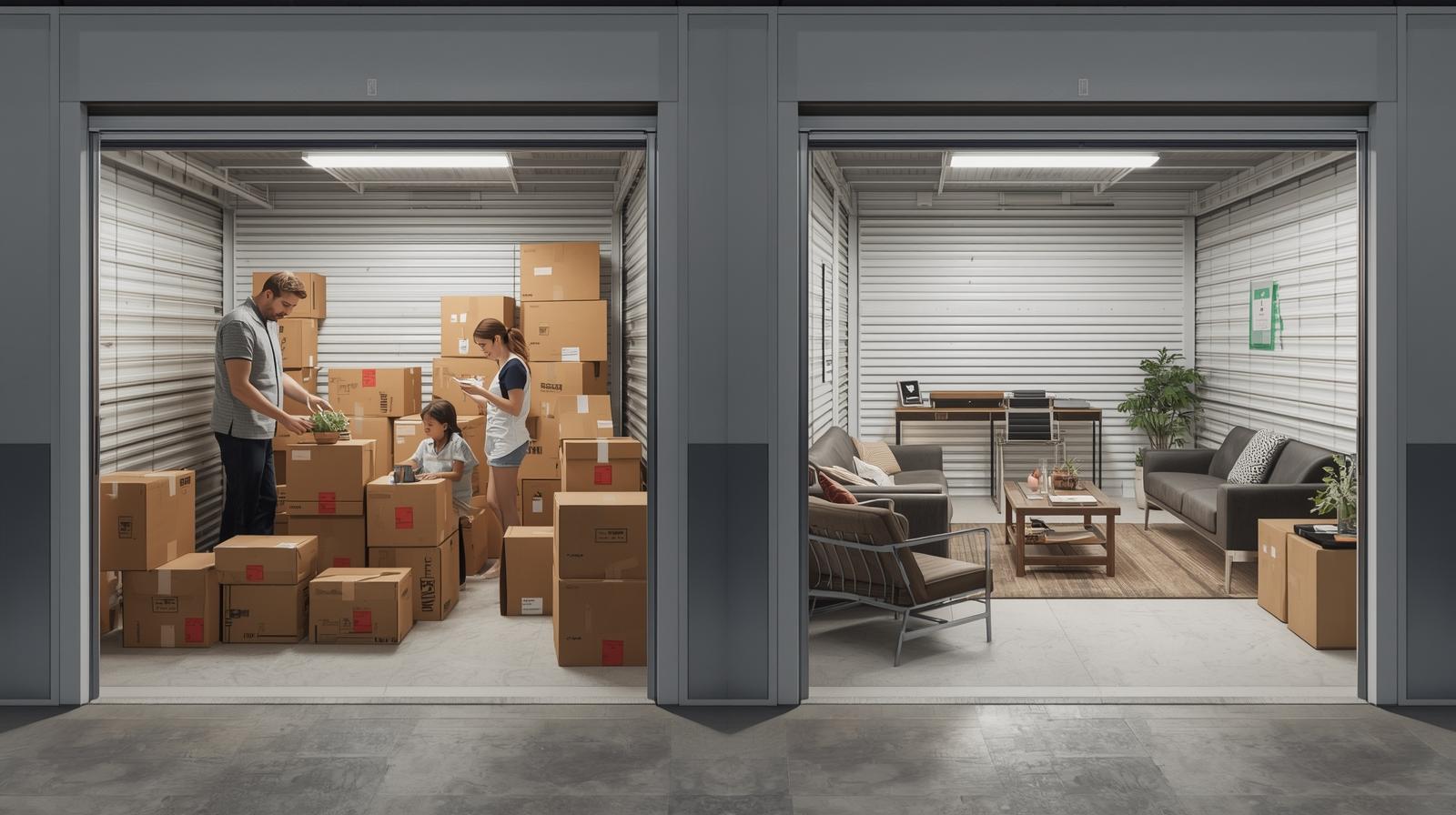
When Short-Term Storage in Dubai Makes Sense
- Renovations: Protect furniture and electronics while your home undergoes repairs.
- Lease Gaps: Store items safely for days or weeks until new keys are ready.
- Travel & Work Assignments: Use while on holiday or short overseas projects.
- Event Materials: Store décor or equipment between exhibitions or festivals.
When Long-Term Storage in Dubai is the Better Choice
- Expat Relocations: Store furniture, cars, or household goods during 1–3 year overseas postings.
- Heirloom & Sentimental Items: Preserve antiques, art, or family heirlooms in climate-controlled conditions.
- Business Inventory: Retailers and SMEs keep stock secure without renting costly warehouses.
- Downsizing: Families moving into smaller homes but wanting to keep furniture for future use.
Pros and Cons of Each Option
Short-Term Storage in Dubai Pros:
- Maximum flexibility
- Ideal for temporary disruptions
- Easy to upgrade/downgrade unit size
- No long-term commitment
Cons:
- Higher per-month cost
- Not cost-efficient beyond 6–9 months
- Frequent access means more packing/unpacking effort
Long-Term Storage in Dubai Pros:
- Lower monthly rates with commitment
- Cost-efficient for years of storage
- Secure, climate-controlled, stable conditions
- Perfect for overseas relocations or downsizing
Cons:
- Requires advance planning
- Less flexible for sudden retrievals
- Some facilities may have limited access hours
Cost Comparison: Realistic Dubai Scenarios
Scenario | Alternative Cost | Short-Term Storage in Dubai | Long-Term Storage in Dubai |
|---|---|---|---|
1-month villa renovation (Arabian Ranches) | Repair/replacement AED 15,000+ | AED 2,000–3,000 | Not practical |
2-week lease gap (Business Bay → Dubai Hills) | Hotel + double rent AED 10,000 | AED 1,200–1,800 | Not practical |
18-month overseas assignment (Downtown expat) | Shipping round trip AED 50,000+ | AED 27,000+ | AED 16,000–20,000 |
Retail stock storage (Deira boutique, 2 years) | Warehouse AED 250,000 | AED 160,000+ | AED 70,000–90,000 |
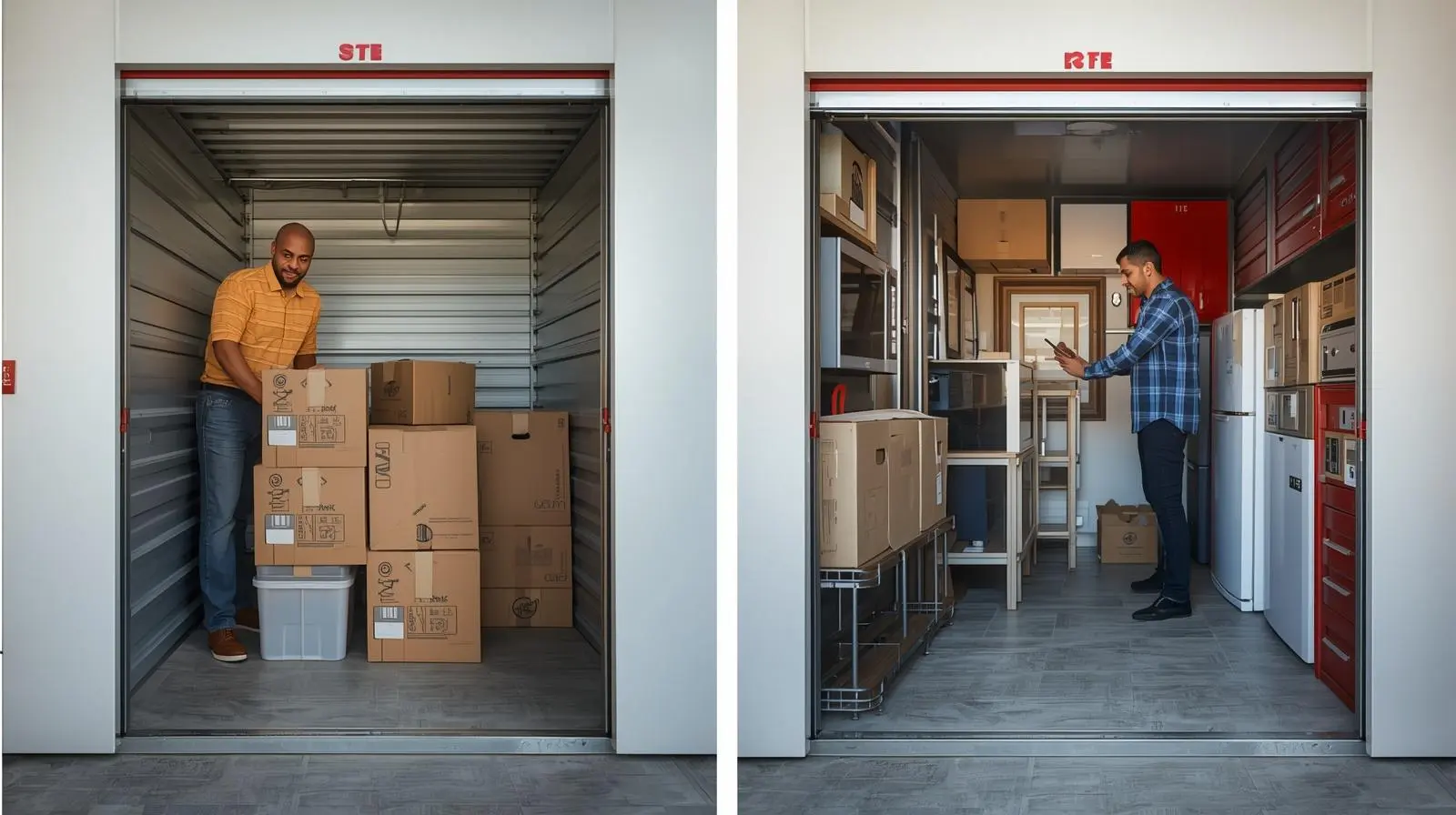
Decision-Making Guide: Ask Yourself
How long will I realistically need storage?
- Less than 3 months → Short-term
- 6 months+ → Long-term
What am I storing?
- Temporary items (furniture during renovation, décor for events) → Short-term
- Full households, heirlooms, business stock → Long-term
How often will I need access?
- Weekly/Monthly → Short-term
- Rarely/Yearly → Long-term
What’s my budget tolerance?
- Higher per-month cost but short duration → Short-term
- Lower monthly cost for an extended period → Long-term
Conclusion: Why Personal Storage in Dubai is the Smart Choice
Dubai’s rapid pace of growth and constant lifestyle transitions make personal storage in Dubai more than just a convenience — it’s a necessity for modern living. Whether you’re facing a short-term challenge like a home renovation, lease gap, or overseas trip, or you need a long-term storage solution for expat relocation, family heirlooms, or business inventory, the right facility can save you time, money, and stress.
By focusing on essential features — security, climate control, accessibility, flexible contracts, and insurance — residents can be confident their belongings are safe, protected, and easy to access when needed. With options ranging from short-term storage units in Dubai for a few weeks to affordable long-term storage for several years, solutions exist for every lifestyle, household, and business.
Short-Term and Long-Term Storage in Dubai – Common Questions Answered
What is the difference between short-term and long-term personal storage in Dubai?
Short-term storage in Dubai covers days to a few months—great for renovations, lease gaps, travel, or exhibitions. Long-term storage in Dubai is 6+ months—ideal for expat relocations, heirloom protection, downsizing, or business inventory. Short-term offers maximum flexibility; long-term offers lower monthly rates.
How much do storage units in Dubai cost?
Prices vary by size, location, and contract length. As a guide:
Small locker (documents/clothes): AED 250–400/month
1BR contents: AED 800–1,200/month
Large villa-sized unit: AED 1,800–3,000/month.
Why is climate-controlled storage essential in Dubai?
Dubai’s heat (often 45°C+) and humidity can warp wood, damage electronics, and cause mold on fabrics. Climate-controlled storage units in Dubai keep the temperature ~18–24°C and humidity ~40–55%, protecting furniture, documents, artwork, photos, and leather.
What security features should I expect from a storage facility in Dubai?
Look for 24/7 CCTV, controlled access (PIN/biometric), on-site staff, alarm systems, and digital access logs. Reputable providers in Al Quoz, Al Barsha, Dubai Marina, and DIP will clearly explain their security protocols.
Can I access my storage unit 24/7?
Many storage facilities in Dubai provide 24/7 access; others are restricted to business hours. Confirm access windows, parking, loading bays, and lift availability—especially if you plan frequent visits or store business stock.
What items should not be stored?
Generally prohibited: perishables, flammables, explosives, toxic/chemical substances, illicit goods, and living things. Check your facility’s restricted items list before signing.
How do I choose the right unit size?
List furniture and box counts, take quick photos, and ask the provider for a recommendation. It’s often cheaper to pick one right-sized unit than to cram two smaller ones. If unsure, start slightly larger and downsize later.
Do I need insurance for my storage unit in Dubai?
Insurance is strongly recommended—especially for long-term storage and high-value items (art, antiques, jewelry, pro equipment). Ask what’s included by default, the coverage limits, exclusions, and whether extended coverage or third-party insurance is available.
What’s the best way to pack for Dubai’s climate?
Use breathable covers (avoid plastic on wood/leather), add silica gel packs, double-box fragile items, roll rugs face-in, keep electronics in original boxes, and label clearly on three sides. For long-term storage, prioritize climate-controlled units.
Can the storage company help with pickup, moving, and delivery?
Many personal storage providers in Dubai offer add-ons: professional packing, door-to-door pickup, partial retrievals, shelving, and digital photo inventories. Ask for a bundled quote to compare against hiring movers separately.
Rakan Al-Juraid is a logistics specialist with a focus on commercial storage systems and high-security asset management. With extensive experience in industrial warehousing, he specializes in inventory tracking technology and transit safety. Rakan’s expertise lies in streamlining the storage process for both businesses and homeowners through strategic planning. His writing offers data-driven advice on insurance for stored goods, fire-safe environments, and heavy-duty logistics. He is committed to ensuring that every square foot of storage is utilized with maximum security and efficiency. Rakan aims to provide professional-grade storage standards to every reader navigating the moving process.
